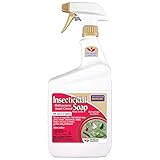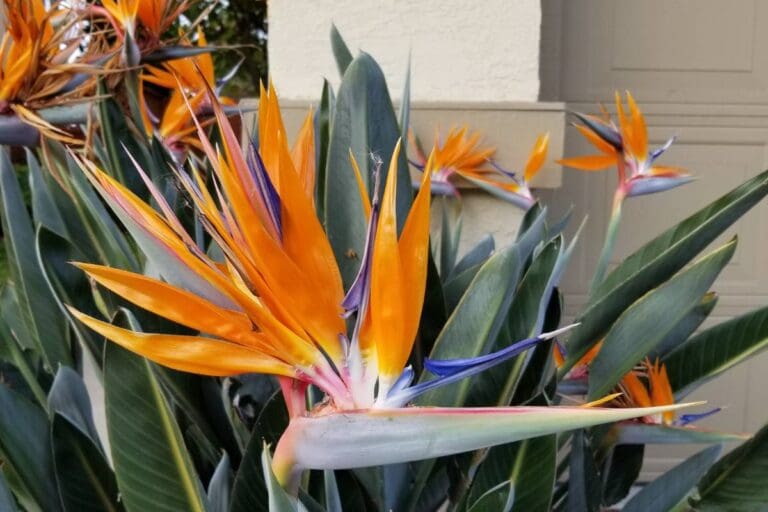Are Boston Ferns Pet Friendly? (Cats, Dogs & Other Animals)
There is always some ongoing curiosity if you keep plants and pets in the same house. The lush green leaflets of your Boston fern might attract your pets, so it is crucial to know whether your Boston ferns are pet-friendly plants.
Does eating the leaves of Boston ferns can cause health issues for your pets? Let’s find out in this article.
Many ferns are usually not safe and can be toxic to pets, but the Boston fern is one of the exceptions. According to the ASPCA, Boston ferns are considered safe plants and are non-toxic to pets like cats and dogs. However, don’t let your pet munch on it, as it can cause digestion problems.
The only problem is that their shaggy fronds might be tempting to your pets, and they can chew it in excess amounts.
Eating the plant in excess can cause vomiting, indigestion, or diarrhea. You need to take your pet to a vet for any of the above problems.
This article will educate you more about whether the Boston fern is pet-friendly. It will also suggest ways to keep your pets away from the plant.

Please note: Simplify Plants is reader-supported. Some links in the post are affiliate links and I get a commission from purchases made through links in the post.
Boston ferns and toxicity
Boston ferns are fern species coming from the Lomariopsidaceae family native to tropical places.
The most attractive part of these ferns is their sword-shaped, blue-green fronds with many small leaflets.
Boston ferns improve your house’s air quality and raise the humidity level by replenishing moisture in the air.
They have many health benefits as people with dry skin, sore throat, or dry nostrils benefit from their air-purifying quality.
These plants are also loved for their non-toxic nature.
Most of the fern species are toxic to pets and humans.
Fern species such as Australian Nut, Plumosa, emerald feather, and Sprengeri are poisonous and have a toxic substance called latex sap present in their leaves and stems.
The ill-effects of these Ferns can range from nausea, cardiac issues, or gastrointestinal problems.
You need to run to a vet if your pet ate any poisonous ferns.
Boston ferns are the exception among the fern family as their spores are non-poisonous for pets, making them a suitable plant for indoor gardening.
Also read: 21 Best Pet Safe Indoor Plants(+Basic Care Guide)
Are Boston ferns harmful to cats and dogs?

As we have already discussed earlier, Boston ferns are non-toxic to pets.
But they can be exciting to pets, particularly cats and dogs.
Cats and dogs like to play with the fronds of Boston ferns.
The plant will not harm your pets if they eat a little of it.
But their fronds can be harmful if your pets eat a big chunk of them.
Although they are not poisonous, high consumption of this plant will cause unpleasant side effects.
Some common symptoms like vomiting, indigestion, and diarrhea indicate that your pet has consumed Boston fern in large quantities over an extended period.
Therefore, it’s crucial to be cautious and keep your pets away from the plant.
You can spray the leaves of Boston ferns with Bitter apple or vinegar-water solution to discourage their activity.
You can provide your pets with many toys to remain distracted from the plant.
The best solution to keep your pets away is to choose a spot for Boston ferns that they can’t reach.
However, the symptom of swallowing a real fern, on the other hand, can cause serious ill effects that require medical treatment.
Can pets eat Boston ferns?
Yes, your pets can eat Boston ferns but only in moderation.
If you have pets in your home, whether a dog or a cat, the plants in your home should not offer any health risks.
Apart from adding beauty and freshness to your house, Boston ferns are non-toxic and won’t harm your pets.
The American Society for the prevention of cruelty and animals (ASPCA) has confirmed this.
So the good thing is that eating Boston ferns in moderation will not make your pet sick.
Since the shaggy fronds of the plant can be attractive to your pets, they can’t resist themselves to play with them.
This can result in the pet eating too many fronds, which can cause serious health issues.
If you notice that your pets are chewing Boston ferns, take immediate actions to discourage such behavior.
If you do stop your pets in time, their chewing activity can cause them to bite the wrong plant.
Eating a few leaves won’t cause your pet any damage, but eating a large amount of green matter will cause health problems.
The guts of cats and dogs are made to manage meat, and green leaves are not a part of their dietary habit.
What happens if your pet ingests a large amount of Boston ferns?

If your pet has consumed Boston ferns in a larger quantity, you will notice some abnormal behavior in them.
Some signs you might notice in your them are:
- Diarrhea
- Stomach pain
- Indigestion
- Drooling
- Vomiting
The pest might show symptoms like mouth irritation, blisters, and swelling if they accidentally brush up against the plant’s leaves.
What to do if your cat or dog ingests Boston ferns?
If your pet has eaten many Boston ferns, you must take it to the vet as quickly as possible.
Pets do know which food is good or bad for them, so it is the pet owner’s responsibility to keep a check on their eating habits.
If your pet has fallen sick, contact your veterinarian.
Take a plant sample to the pet’s click to check its toxicity level.
Tell the vet what symptoms or problems your pet is facing after eating Boston ferns.
The veterinarian may rinse your pet’s skin or mouth to figure out the evidence of the plant you bring to the clinic.
Never take such situations lightly.
The veterinarian will tell whether your pets need treatment at home or in the hospital.
The doctor will determine the effects of the plant on the pet’s stomach, and accordingly, he will do the treatment.
For example, he can give intravenous fluids to cure dehydration caused by excessive diarrhea or vomiting.
He will provide medications to treat gastrointestinal problems.
He may keep your pet under observation until it shows any sign of recovery.
How to keep dogs away from Boston ferns?

Dogs are obedient pets, and you can train them not to go near your plant.
But what if you are not at home and your dogs become curious to go near the plant?
You should keep the following points in mind if you are a dog owner and have a Boston fern.
- You can keep your Boston ferns on sturdy selves where the dogs can’t reach.
- You can also keep the plant on a porch, balcony, or window where the doors are closed, and they can’t visit there.
- You can confine the plant to a particular area where the dogs are not allowed to go.
- Dogs are easy to train, and they can obey your orders. You can train them to stay away from your houseplants. Do not restrict them. Otherwise, there are chances they will not follow your order.
- Remove any of the dead or wilted leaves falling from your plant. If your dogs consume those leaves, they can face more issues. Throw the fallen leaves before your dog sniffs them.
- You can also sprinkle red pepper flakes or mustard powder near your plant. They do not like the smell of spices and will stay away from your plant.
How to keep cats away from Boston ferns?
Cats are difficult to train and can be more inquisitive than dogs.
So you should be much more careful if you are a cat owner and keep the following points in mind to keep her away from your planṭ.
- There are cat repellent sprays available in the market that you can spray near the plant. The sprays are strong-scented, and the cats will sneeze if it goes too close to the plant.
- You can change the location of your plant where the cats won’t be able to go. You can keep the plant in hanging baskets, containers that mount straight to the wall, or any other place your cats can’t reach.
- You can spread cayenne pepper near your plant to keep cats away. Cayenne pepper has the chemical compound capsaicin, a strong smell that cats don’t like.
- You can spread a layer of coffee ground on the soil to keep cats away. They will whiff the coffee grounds and will stay away from your plant.
- You can put some peels of oranges in the pot. Cats strongly dislike citrus fruits, so they will stay away from your plant.
- You can provide your cats with toys they can play with. Toys will keep them busy, and they will not go near the plant.
Are Boston ferns toxic to small pets?
Boston ferns are non-toxic to small pets like rabbits.
Boston ferns are one of the favorite delicacies for rabbits.
Rabbits like to eat all parts of your plant, which is safe for them.
But rabbit’s higher consumption can damage your plant.
Therefore you should keep your Boston ferns away from rabbits.
If you have other small pets like birds, rats, or squirrels, you should not worry about their consumption.
They will not experience any problems after eating Boston ferns.
Squirrels and birds like the taste of Boston ferns and tend to revisit the plant repeatedly.
So it is important to keep your tiny pets away to protect your plant’s growth.
However, if you have a guinea pig, make sure that they won’t eat Boston ferns.
The digestive system of guinea pigs doesn’t allow them to eat whatever food they like.
Boston ferns fronds can be harsh for their digestive system to process.
They can only eat fruits, vegetables and some kinds of plants.
Among all the fern species, they can only eat fiddlehead ferns as these ferns are harvested as vegetables.
So it’s always better to keep Boston ferns away from your tiny pets.
Final words
As per the ASPCA guidelines, Boston ferns are considered a non-toxic plant for your pets. However, their long shaggy fronds can tempt pets like cats and dogs.
Boston ferns will not harm your pets if they consume them in moderation. But your pets will suffer from ill effects if they consume the plant in higher amounts or for a prolonged period.
Higher consumption of Boston ferns will cause your pets to suffer from drooling, vomiting, diarrhea, or mouth irritation. If your pet has fallen sick, you must contact your nearest vet for their treatment.
To have Boston ferns and pets in the same, you need to learn how to keep them away from each other. I have mentioned some ways to keep your dogs and cats away from your plant in this article.
Whether houseplants are toxic or not, it is always better to keep the pets away for each other’s safety.
Reference: University of Florida, The University of Arkansas Division, Texas A&M University System, The University of Georgia, University of New Hampshire, Wikipedia, The Royal Horticultural Society.
Recommended Garden Supplies
| Product Image | Our Recommended Gardening Supplies | Check Offers! |
|---|---|---|
Top Top
Top
Top
Top
Top
Top
Top
Top | rePotme Houseplant and Tropical Classic Potting Soil Mix | Check Offer On Amazon |
 Top
Top
Top
Top
Top
Top
Top
Top | Espoma Organic Indoor Plant Food | Check Offer On Amazon |
 Top
Top
Top
Top
Top
Top
Top
Top | GooingTop LED Grow Light 6000K Full Spectrum Clip Plant Growing Lamp | Check Offer On Amazon |
 Top
Top
Top
Top
Top
Top
Top
Top | Soil Moisture Meter | Check Offer On Amazon |
 Top
Top
Top
Top
Top
Top
Top
Top | Govee Hygrometer Thermometer, Bluetooth Enabled! | Check Offer On Amazon |
 Top
Top | LEVOIT Humidifiers for Large Room(Best For Plants) | Check Offer On Amazon |
 Top
Top
Top
Top
Top
Top
Top
Top | Upgraded DIY Automatic Drip Irrigation Kit, 15 Potted Houseplants Support | Check Offer On Amazon |
 Top
Top
Top
Top
Top
Top
Top
Top | Stainless Steel Heavy Duty Gardening Tool Set | Check Offer On Amazon |
 Top
Top
Top
Top
Top
Top
Top
Top | Bonide Insecticidal Soap | Check Offer On Amazon |
 Top
Top
Top
Top
Top
Top
Top
Top | Bonide 32 oz Spray Neem Oil for Organic Gardening | Check Offer On Amazon |
 Top
Top
Top
Top
Top
Top
Top
Top | Garden Safe Fungicide | Check Offer On Amazon |






